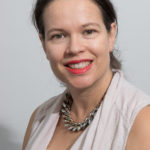
Field of Research:
Enterprise Engineering, Economics, Project- and Risk Management
Lecturer: Prof Corne Schutte
The research area covers the field of enterprise engineering which is a systems engineering focus on the way in which enterprises are constructed. Engineers draw on knowledge throughout their studies to construct the complex adaptive system that is an enterprise. The enterprise engineering cycle focusses from the idea of an enterprise, through to strategic intent, strategy, tactics and how these are implemented through project management with a keen focus on the financials and risk management of the enterprise and the project.
The research allows for the hard sciences in engineering on an elemental level of the organisation and project management right up to the softer sciences with a systems engineering focus on strategy, tactics and the organisation of the entities within the enterprise.
List of research topics |
Meng |
PhD |
Funding |
|
| 1 | Building an enterprise for the South African future | X | Refer to notes below | |
| 2 | Enterprises as living organism: Antifragility | X | Refer to notes below | |
| 3 | Enterprises as living organisms: Design Structure Matrices | X | Refer to notes below | |
| 4 | Enterprises as living organisms: Organisation of functional units for adaption | X | Refer to notes below | |
| 5 | Project Management in a start-up economy | X | Refer to notes below | |
| 6 | Risk and feasibility management: Removing the straw that breaks the camel’s back | X | Refer to notes below | |
| Notes regarding funding: | ||||
| Funding has not yet been confirmed, but do get in touch with us so we can discuss any possible funding opportunities. | ||||
| Prerequisites or requirements: | ||||
| N/A | ||||
Field of Research:
Enterprise engineering, management, complex adaptive systems, risk management and antifragility.
Lecturer: Dr Denzil Kennon
Enterprise engineering is the field of study which allows the systems engineer to encroach on how enterprises as a whole are run by seeing the enterprise as a complex system.
In assessing, organising, designing and operating these systems, there are various ways at looking how these systems respond to internal- and external environments. In South Africa, there are unique challenges, which is why an enterprise for a South African future is required. Models, frameworks, policy and other constructivist considerations are required to support this.
Enterprises in this way can be seen as living organisms which would evolve and adapt. This is made possible through various lenses through which a problem can be assessed; antifragility, design structure matrices, enterprise-in-environment adaptation, etc. A different view on how risk can be seen in these ever evolving fields is required where sandboxes are created where failure = learning whilst supporting growth in the system.
If you are interested in transcending transdisciplinary problem solving and, as a result, creating your own niche engineering skill, please contact me.
Further discussions with myself will be required to ensure that the prospective student’s passion is married to a field mentioned above.
List of research topics |
Meng |
PhD |
Funding |
|
| 1 | Own research interest merged with alternative tools | X | Refer to notes below | |
| Notes regarding funding: | ||||
| Funding is available for candidates with special cases | ||||
| Prerequisites or requirements: | ||||
| N/A | ||||
Field of Research:
Enterprise Engineering
Lecturer: Prof Louis Louw
Engineering Management/ Enterprise Engineering/ Innovation
Enterprise engineering is a discipline that views the enterprise as a complex system that can be purposefully designed or re-designed. It applies systems theory and engineering techniques to the specification, analysis, design, re-design or improvement, and implementation of an enterprise for its life cycle. It is a multi-disciplinary approach that “takes a broad perspective in synthesizing technical and non-technical aspects of enterprise capability”. Innovation also an important driver for enterprise design /re-design, and therefore the management or enablement of innovation is therefore also a key focus.
The work life and the organisational world is changing very fast. Digitisation and the industrial revolution 4.0 is accelerating these changes. The impact on organisations and humans will be immense. Some new developments are organisations and their ecosystems, digital leadership, digital and agile organisational culture, new work places, robots in factories, big data and new business models, virtual/augmented reality, mobility all around, open innovation via the Internet.
A key research focus in both these fields will be on the digitalisation of operations and value chains in service environments (such as financial services). Digitization has touched all aspects of businesses, including supply chains and operating models/ business models. Today, new technologies have enabled organizations to transform their existing hybrid structures (combination of paper-based and IT-supported processes) into more flexible, open, agile and collaborative digital models. Digital value chains enable business process automation, organizational flexibility and digital management of corporate assets.
List of research topics |
Meng |
PhD |
Funding |
|
| 1 | Digitising in value chains – impacts on business models, enterprise design and innovation (various topics in this field can be considered, including students own topics | X | Refer to notes below | |
| 2 | Block chain – impact and applications in operations and value chains (in service organisations) | X | Refer to notes below | |
| 3 | Own topics in the field of enterprise engineering, innovation – can be discussed | X | X | Refer to notes below |
| Notes regarding funding: | ||||
| Bursaries may be available for these projects, but cannot be confirmed at this stage. | ||||
| Prerequisites or requirements: | ||||
| N/A | ||||
Field of Research:
Engineering Management – Enterprise Engineering
Lecturer: Prof Sara Grobbelaar
• IoT and Big Data are a great opportunity for developing countries to leapfrog from scientifically disadvantaged nations into technology advanced nations. They may help closing the technology gap and boost scientific progress as they can help build and expand a knowledge society.
• The Internet of Things can enable the next wave of life-enhancing services across several fundamental sectors of the economy – however use cases for Africa will look very different from those in the developed world…this needs to be developed and explored in our programme.
• It is the traditional approach to focus innovation programmes on industry verticals such as transport, energy, automotive, manufacturing, construction etc.
• The IoT co-creation programme will however seek to explore how industry boundaries may be redefined and how industries may be transformed through the IoT revolution
The programme will also straddle across application areas within the Department of Industrial Engineering considering application areas in areas such as Health, manufacturing, asset management, and supply chain management.
Objectives of the Hub are to:
• Study and explore locally relevant and efficient capacity building and adapted IoT and Big Data deployment models.
• Explore use-cases and applications for IoT in Africa towards inclusive development and growth related issues such as productivity, improvement of quality of life, safety, health, education, energy and utility management
• Development of thought leadership capacity towards shaping and understanding eco-system and platform markets in the African context.
• Exploratory studies and case studies of the transformative effects of redrawing industry boundaries of the IoT in industry in Africa.
• Have a particular focus on the design and development of regulations and policies which are adapted for local needs and constraints (e.g. standards, security and ethics).
We have a few very exciting projects in collaboration with Vodacom, Aurecon and also the CSIR.
We have scholarships available for 4-5 students who want to work within the abovementioned themes. Possible internships at partner organisations exist as well as performance incentives.
List of research topics |
Meng |
PhD |
Funding |
|
| 1 | Exact topics to be explored with the lecturer. | X | X | R80,000 per annum |
| Notes regarding funding: | ||||
| N/A | ||||
| Prerequisites or requirements: | ||||
| N/A | ||||









